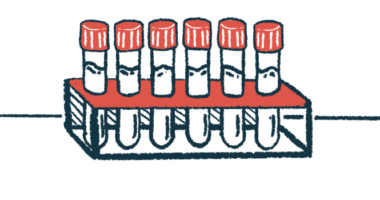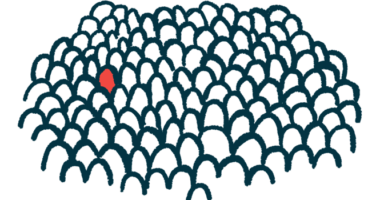SPHERES registry to now include NMOSD patients’ biological samples
Goal is to enroll 800 patients, obtain samples from at least 300

SPHERES, a real-world registry for neuromyelitis optica spectrum disorder (NMOSD), is now collecting biological samples from consenting participants.
Launched by CorEvitas and the Guthy-Jackson Charitable Foundation (GJCF) in 2021, the registry had been collecting long-term clinical data, but not biological samples.
“The launch of this biospecimen initiative offers a unique approach to understanding and treating this rare disease,” Austin Read, vice president of precision medicine at CorEvitas, said in a joint press release.
Information gained from the registry “will uncover deep clinical insights to develop and optimize therapy for every patient in the future, regardless of their disease [presentation],” Read said.
The organizations maintain that, when paired with clinical information, data on cellular and molecular biomarkers from biological samples will help the registry better reach its goal of informing the development of better diagnostic testing and treatments for NMOSD.
NMOSD is a rare autoimmune disease affecting the cells that support the nervous system, leading to inflammation in the spinal cord and optic nerve, which acts as a line of communication between the eyes and the brain.
The presentation of the disease, its progression, and responses to treatment can vary from person to person.
Biospecimen collection will help accelerate research
Short for Synergy of Prospective Health & Experimental Research for Emerging Solutions in NMOSD, SPHERES is an effort to learn more about the causes of NMOSD, its clinical course, and the effects that approved therapies have on patients.
“SPHERES is the first regulatory-grade registry focused on understanding the impact of recently approved therapies on clinical outcomes, disease burden, and quality of life for patients,” Read said.
The registry is also open to people with myelin oligodendrocyte glycoprotein antibody-associated disease (MOGAD), a related autoimmune disorder.
Information housed in the registry includes patient demographic data, treatment history, adverse events, clinical disease course, and patient-reported outcomes such as fatigue, pain due to nerve damage, and quality of life.
Now, biological samples can be matched to these data to get a more in-depth picture.
“With the addition of biospecimen collection, the SPHERES Registry now accelerates precision medicine research to optimize treatment efficacy and safety, as well as understand the underlying immunology of these conditions,” said Michael Yeaman, PhD, chair medical advisor to GJCF and a professor of medicine at the David Geffen School of Medicine, University of California Los Angeles.
CorEvitas, which sponsors a number of autoimmune and inflammatory disease registries, is responsible for collecting, managing, and analyzing demographic, clinical, and biological data. GJCJ advisors are serving as part of the registry’s scientific steering committee.
The goal is to enroll 800 patients and obtain biological samples from at least 300. As of last month, a milestone of 200 enrolled patients was met. Participants have been recruited at more than 22 CorEvitas clinical sites in North America with the help of more than 70 doctors.
“The dedication of patients and healthcare providers to make the SPHERES Registry a success is truly remarkable,” Yeaman said. “This rare synergy is advancing knowledge to directly benefit people living with NMOSD.”







